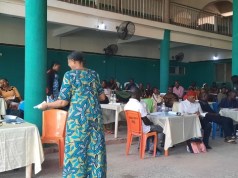Stanley Ihedigbo
The Foundation for Partnership Initiatives in the Niger Delta (PIND), in collaboration with the Building an Economically Sustainable, Integrated Cassava Seed System, phase 2 (BASICS-II) project, and KOLPING Society of Nigeria (KSN), trained 61 Commercial Seed Entrepreneurs (CSEs), drawn from the Niger-Delta region of Nigeria.
Project Manager and Advocacy Lead at the International Institute of Tropical Agriculture (IITA), Godwin Atser, described the training as a rare opportunity to help tackle food insecurity in the region.
He said that the training comes during the rainy season when farmers are preparing fields to cultivate cassava in several parts of the country amid rising demand for cassava roots and planting materials.
“The training, which commenced in Abia, was part of efforts to create sustainable jobs, create wealth, tackle food insecurity, and restore agriculture as an economic lifeline for the region. The commercial seed entrepreneurs were drawn from Abia, Akwa-Ibom, Bayelsa, Cross River, Delta, Edo, Imo, and Rivers states.
He commended the three organizations — PIND, BASICS-II, and KOLPING—for pulling resources together to conduct the training for the benefit of farmers.
The Head of the KOLPING Society of Nigeria (KSN), Sir Blaise Okezie, lauded the training, stressing that they were excited to contribute to the development of the Niger Delta region.
He explained that the two-day training covers; “Cassava Seed System and Digital Agriculture, Use of IITA Herbicides Calculator; the Six Steps to Weed Management & Best Practices; Cassava Pest and Disease Identification and Management; National Agricultural Seed Council (NASC) Seed Quality Protocol; Herbicide Use and Safety; the Business of Cassava Seeds; Recordkeeping & Financials; and Implementation Planning.
He added that the resource persons for the training came from NASC, IITA, and the National Root Crops Research Institute, Umudike.
Participants commended the training and described it as “impactful.”For farmer Ndudim Ikelua: “It was a nice outing for the organizers and participants who availed themselves. Indeed, commercial cassava will provide the leverage that will address the unemployment of our youth, women, and men in our states and provide food security in our country.”
Still, another trainee, Dr. Ugborugbo Umuvwie has this to say: Great training in content and delivery. Well appreciated, and many thanks.
Over the years, farmers who participated in the training in previous years and applied the principles recorded increases in cassava and maize production yield.
Godwin said the training addressed the constraints that hinder the transformation of cassava in Africa.















